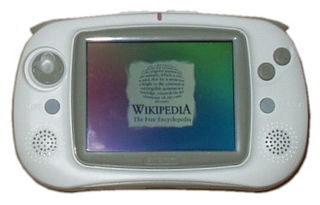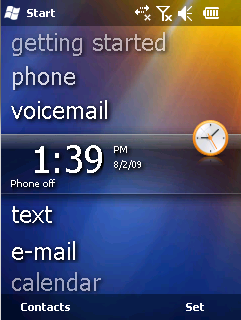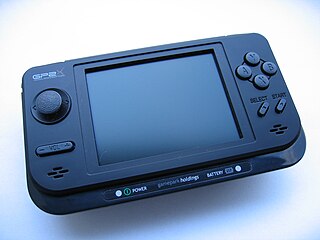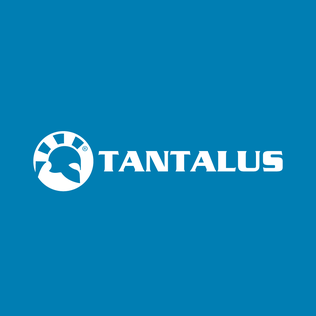
A video game or computer game is an electronic game that involves interaction with a user interface or input device to generate visual feedback from a display device, most commonly shown in a video format on a television set, computer monitor, flat-panel display or touchscreen on handheld devices, or a virtual reality headset. Most modern video games are audiovisual, with audio complement delivered through speakers or headphones, and sometimes also with other types of sensory feedback, and some video games also allow microphone and webcam inputs for in-game chatting and livestreaming.

The history of video games began in the 1950s and 1960s as computer scientists began designing simple games and simulations on minicomputers and mainframes. Spacewar! was developed by Massachusetts Institute of Technology (MIT) student hobbyists in 1962 as one of the first such games on a video display. The first consumer video game hardware was released in the early 1970s. The first home video game console was the Magnavox Odyssey, and the first arcade video games were Computer Space and Pong. After its home console conversions, numerous companies sprang up to capture Pong's success in both the arcade and the home by cloning the game, causing a series of boom and bust cycles due to oversaturation and lack of innovation.

A video game console is an electronic device that outputs a video signal or image to display a video game that can be played with a game controller. These may be home consoles, which are generally placed in a permanent location connected to a television or other display devices and controlled with a separate game controller, or handheld consoles, which include their own display unit and controller functions built into the unit and which can be played anywhere. Hybrid consoles combine elements of both home and handheld consoles.
In computing, cross-platform software is computer software that is designed to work in several computing platforms. Some cross-platform software requires a separate build for each platform, but some can be directly run on any platform without special preparation, being written in an interpreted language or compiled to portable bytecode for which the interpreters or run-time packages are common or standard components of all supported platforms.

The GP32 is a handheld game console developed by the South Korean company Game Park. It was released on November 23, 2001, in South Korea and distributed in some parts of Europe.
Windows Embedded Compact, formerly Windows Embedded CE, Windows Powered and Windows CE, is a discontinued operating system family developed by Microsoft as part of its Windows Embedded family of products.

SNK Corporation is a Japanese video game hardware and software company. It is the successor to the company Shin Nihon Kikaku and presently owns the SNK video game brand and the Neo Geo video game platform, and electronics. SNK's predecessor Shin Nihon Kikaku Corporation was founded in 1978 by Eikichi Kawasaki. In 1981, the name was informally shortened to SNK Corporation, which became the company's official name in 1986.

The video game industry is the tertiary and quaternary sectors of the entertainment industry that specialize in the development, marketing, distribution, monetization and consumer feedback of video games. The industry encompasses dozens of job disciplines and thousands of jobs worldwide.
Game programming, a subset of game development, is the software development of video games. Game programming requires substantial skill in software engineering and computer programming in a given language, as well as specialization in one or more of the following areas: simulation, computer graphics, artificial intelligence, physics, audio programming, and input. For multiplayer games, knowledge of network programming is required. In some genres, e.g. fighting games, advanced network programming is often demanded, as the netcode and its properties are considered by players and critics to be some of the most important metrics of the game's quality. For massively multiplayer online games (MMOGs), even further knowledge of database programming and advanced networking programming are required. Though often engaged in by professional game programmers, there is a thriving scene of independent developers who lack a relationship with a publishing company.

A mobile game, or smartphone game, is a video game that is typically played on a mobile phone. The term also refers to all games that are played on any portable device, including from mobile phone, tablet, PDA to handheld game console, portable media player or graphing calculator, with and without network availability. The earliest known game on a mobile phone was a Tetris variant on the Hagenuk MT-2000 device from 1994.

Windows Mobile was a family of mobile operating systems developed by Microsoft for smartphones and personal digital assistants.

The GP2X is a Linux-based handheld video game console and portable media player developed by South Korean company GamePark Holdings. It was released on November 10, 2005, in South Korea only.

Adobe AIR is a cross-platform runtime system currently developed by Harman International, in collaboration with Adobe Inc., for building desktop applications and mobile applications, programmed using Adobe Animate, ActionScript, and optionally Apache Flex. It was originally released in 2008. The runtime supports installable applications on Windows, macOS, and mobile operating systems, including Android, iOS, and BlackBerry Tablet OS.
Call of Duty is a video game series and media franchise published by Activision, starting in 2003. The games were first developed by Infinity Ward, then by Treyarch and Sledgehammer Games. Several spin-off and handheld games were made by other developers. The most recent title, Call of Duty: Modern Warfare III, was released on November 10, 2023.

Tantalus Media is an Australian video game developer based in Melbourne. It was founded in 1994 by programmers Andrew Bailey and Trevor Nuridin. Since its inception, Tantalus has developed almost 100 games and has won multiple game awards. In March 2021, Keywords Studios acquired 85% of Tantalus Media for US$46.8 million.
Titanium SDK is an open-source framework that allows the creation of native mobile applications on platforms iOS and Android from a single JavaScript codebase. It is presently developed by non-profit software foundation TiDev, Inc.

Marmalade SDK was a cross-platform software development kit and game engine from Marmalade Technologies Limited that contains library files, samples, documentation and tools required to develop, test and deploy applications for mobile devices.

Nintendo, a Japanese home and handheld video game console manufacturer and game developer, has traditionally focused on games that utilize unique elements of its consoles. However, the growth of the mobile gaming market in the early 2010s led to several successive fiscal quarters where they were running at a loss. Nintendo, led by president Satoru Iwata at the time, developed a strategy for entering into the mobile games market with development partner DeNA, as a means of introducing their franchise properties to mobile players with a goal of bringing them to buy Nintendo's consoles later. Since 2015, Nintendo has internally developed a number of mobile games, while also publishing games with other developers, including games outside of the initial DeNA partnership. Several of them have been entered the top-downloaded games list on the iOS App Store and Google Play stores, earning over US$100 million in revenue in total.

Hardlight is a British video game developer founded by Sega and based in Leamington Spa, England. Revealed in January 2012, it is focused on mobile games for smartphones and became part of Sega Europe.

The popularisation of mobile games began as early as 1997 with the introduction of Snake preloaded on Nokia feature phones, demonstrating the practicality of games on these devices. Several mobile device manufacturers included preloaded games in the wake of Snake's success. In 1999, the introduction of the i-mode service in Japan allowed a wide variety of more advanced mobile games to be downloaded onto smartphones, though the service was largely limited to Japan. By the early 2000s, the technical specifications of Western handsets had also matured to the point where downloadable applications could be supported, but mainstream adoption continued to be hampered by market fragmentation between different devices, operating environments, and distributors.














